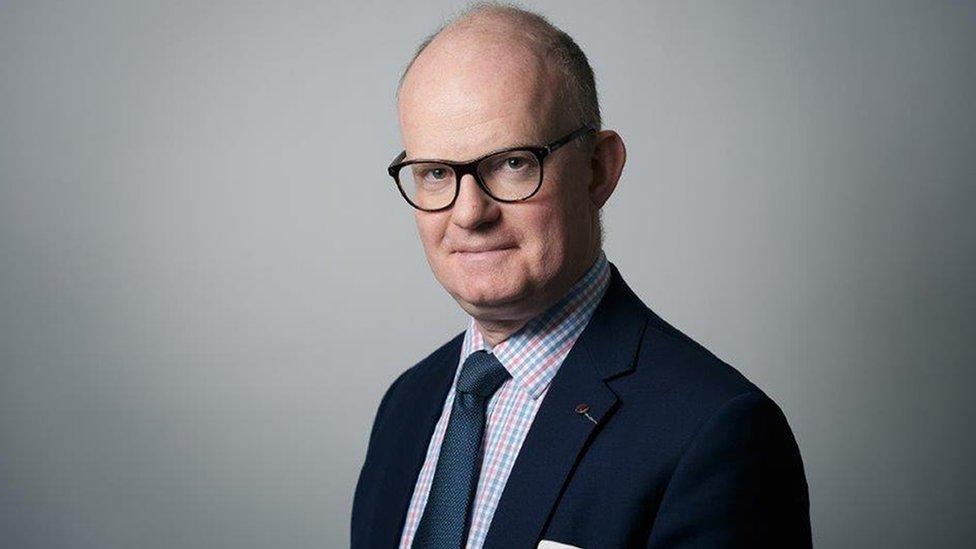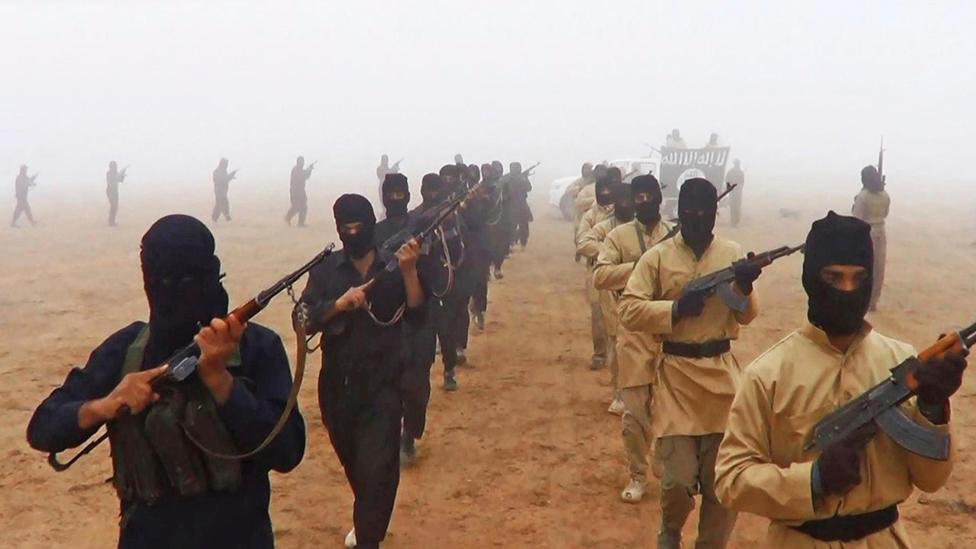New terror laws 'would criminalise thought', watchdog warns
- Published

Terror watchdog Max Hill QC warned the government against a "knee-jerk" reaction to recent attacks
Ministers should not "criminalise thought" with plans to prosecute people who view extremist content online, the UK's terror watchdog has said.
Home Secretary Amber Rudd recently announced plans to increase jail terms for those found guilty to 15 years.
But Max Hill QC said "thought without action" was not terrorism and it would be "quite wrong" to create new laws which treat it as such.
Downing Street said a "clear message" needed to be sent to terrorists.
Following the spate of terror attacks, Theresa May declared "enough is enough" and vowed to crack down on extremism.
Earlier this month, Ms Rudd stated her intention of increasing prison sentences for people who repeatedly stream terror-related content online.
Currently, the law only applies to material downloaded and stored, and comes with a maximum penalty of 10 years.
But speaking to human rights group Justice on Tuesday, Mr Hill warned against a "knee-jerk" reaction and said there was a distinct difference between extremism and terrorism.
"Whilst we can all agree that there should be nowhere for real terrorists to hide, we should also agree that legislating in the name of terrorism when the targeted activity is not actually terrorism would be quite wrong," he said.
"We do not, and should not criminalise thought without action or preparation for action.
"Thought with steps towards action can be terrorism. Thought without action or preparation for action may be extremism, but it is not terrorism."
He argued that government should not be "rushing to add yet more offences to the already long list".
Mr Hill also suggested that terrorists who commit modest or middle ranking offences should not face longer jail terms.
Where that has been done in recent years, it seemed to be driven by "political desire" rather than "real need", he added.

Max Hill QC became the Independent Reviewer of Terrorism Legislation in March 2017
A Downing Street spokeswoman said the UK had to tackle the ideologies that inspire terrorism.
She added: "What we want to do is to send a clear message that we will not tolerate terrorism, those who help radicalise terrorists with their extremist views, or those who turn a blind eye to terrorist activity."
Mr Hill also said British authorities must be more proactive in engaging with the Muslim community, and told his audience many believed there was "one law for Muslims, and another for the rest".
It is the second time the watchdog has found himself at odds with members of the government in recent days.
Earlier this month, Mr Hill said Britons who joined so-called Islamic State through "naivety" should be spared prosecution and instead be reintegrated into society if they return home.
That contrasted significantly with remarks from Foreign Office minister Rory Stewart who said that "in almost every case" British IS fighters should be killed.
- Published23 October 2017

- Published3 October 2017
